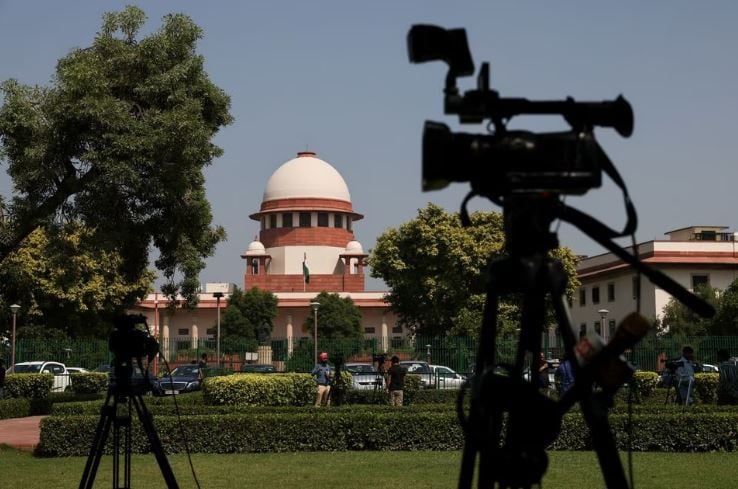
India's top court on Thursday ordered the setting up of a bipartisan panel that will include the prime minister and the chief justice to select the country's election commissioners, ending a practice of the government effectively choosing them.
The Election Commission of India is an autonomous constitutional authority but opposition parties have regularly accused it of caving into the demands of the ruling party, a charge it has denied.
The new panel will also include the leader of the opposition in the lower house of parliament or the opposition party with the highest number of members in the house.
"This norm will continue to hold good till a law is made by parliament," said Justice K.M. Joseph, delivering the order of a constitution bench that heard several petitions calling for an independent committee to appoint election commissioners.
Also read: India ranked worst country in internet freedom
"The election commission of India is to perform the arduous and unenviable task of remaining aloof from all forms of subjugation by and interference from the executive."
Currently, the president of the country, who generally goes by the advice of the government, appoints the chief election commissioner and two commissioners for a tenure of six years each. Typically they are former bureaucrats.
Prashant Bhushan, a lawyer representing the petitioners, termed the judgment "historic".
"They have said the independence of the election commission is absolutely essential for democracy, and for that independence to be assured, you cannot have a system where the government alone appoints the election commissioners," he told reporters outside the court.
India's former chief election commissioner, S.Y. Quraishi, said that "our long pending demands are being met".
"At last SC has clinched it," he said in a post on Twitter, referring to the Supreme Court. "The demand has been pending for two decades. Good for the perception of neutrality of the Election Commission."



1732256278-0/ellen-(1)1732256278-0-165x106.webp)
1725877703-0/Tribune-Pic-(5)1725877703-0-165x106.webp)
















COMMENTS
Comments are moderated and generally will be posted if they are on-topic and not abusive.
For more information, please see our Comments FAQ